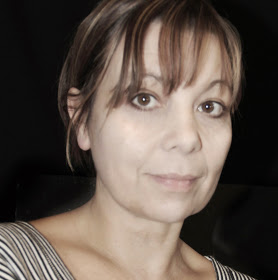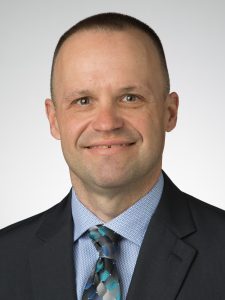2018-2019 Symposium
The 2018-2019 Distinguished Speaker Series (Fall/Winter):
Brauer Museum of Art, Center for the Arts, 7:00 – 8:00 pm
With the sun as her source and subject, Krista Steinke explores the physical and psychological impact of our closest star. Her exhibition incorporates video, personal experience, and experimental photographic processes, to create a multi-layered dialogue about our dual relationship with the sun – essential for life on this planet but also a potential threat. In “Good Luck with the Sun”, the sun’s pathway becomes a drawing tool or mark-making system which collapses time and space and suggests how day to day experiences might fit into the larger scheme of things.
Co-sponsored by Valparaiso University’s Brauer Museum of Art and Christ College.
Harre Union Ballroom A, 6:30 – 7:30 pm
Throughout the world, the separation and alienation of peoples continues to descend into a frightening crisis. The feeling that one’s core values are threatened by the agendas of others contributes to fear, suspicion, the escalation of hostility, and in the worst cases, acts of violence and war. The tendency to identify the “other” as an opponent and attempt to publicly humiliate them afflicts people of all religions and nationalities. The Christian tradition has numerous resources with the capacity to restore the art of engaging one’s opponent to reconcile with the “other.” In this lecture, Nicholas Denysenko will draw from a variety of sources in Christian tradition and present a vision on how Christians might contribute to the healing of public discourse for local and international reconciliation and peace.
Duesenberg Recital Hall, Center for the Arts, 6:30 – 7:30 pm
In humans and humanoid robots alike, gender-femininity, masculinity- constitutes an array of learned behaviors that are cosmetically enabled and enhanced. In humans, these behaviors are both socially and historically shaped, but are also contingent upon many situational influences, including individual choices. I will explore the sex/gender dynamics informing the design and embodiment of artificial intelligence (AI) and robots, especially humanoids. The argument I will make is that advanced technology does not necessarily promote social progress but rather is deployed to reinforce conservative models of sex/gender roles and family structures.
Duesenberg Recital Hall, Center for the Arts, 6:30 – 7:30 pm
THE SHIFT: One Nurse, Twelve Hours, Four Patients’ Live (in paperback May 3, 2016) is a vivid first-hand account of what nurses do day in and day out and opens our eyes to the intense, frustrating, and often joyful profession that is really the heart and soul of any hospital. By sharing her ups and downs during just one shift on the floor of the cancer ward, Theresa Brown, an English professor turned nurse, reveals how nurses advocate for their patients, explain treatment to families, make dozens of medical decisions, chart their work, interact with doctors and hospital staff, and keep their own emotions in check all in the span of twelve hours when the lives of their patients are in their hands. As the Wall Street Journal wrote, “The Shift is one nurse’s story, but it contains elements of every nurse’s experience.”
Co-Sponsored by College of Nursing, The John R. Eckrich Chair in Religion and the Healing Arts, English Department, Cultural Arts Committee, University Writing Program.
Mueller Hall Refectory, 6:30 – 7:30 pm
Even when we praise a person who suffers for not sinking under his suffering, we suppose that the sufferer is to be ranked more among life’s losers than among life’s winners. From the Patristic period onward, however, the Christian tradition has held that those who endure serious suffering are not the pitiable losers of life or even the heroic overcomers of tragedy but rather are those specially loved by God. Clearly, there is something right about the contemporary unreflective rejection of suffering as bad. Someone who valued suffering as an intrinsic good would be perverse at best and mentally disturbed or evil at worst. But I want to look closely at the relevant Christian doctrines to see what can be said to explain and defend the attitude towards suffering found in the Christian tradition that sees suffering as part of flourishing.
Co-Sponsored by Valparaiso University’s Department of Philosophy.
Mueller Hall Refectory, 6:30 – 7:30 pm
Ada Palmer’s first science fiction novels Too Like the Lightning and Seven Surrenders (volumes one and two of Terra Ignota, from Tor Books) explore how humanity’s cultural and historical legacies might evolve in a future of borderless nations and globally commixing populations. She teaches in the University of Chicago History Department, studying the Renaissance, Enlightenment, classical reception, the history of books, publication and reading, and the history of philosophy, heresy, science and atheism, and is the author of Reading Lucretius in the Renaissance (Harvard University Press).
The 2018 Fireside Symposium Schedule (Fall):
Mueller Hall Commons, 6:30 – 7:30 pm
Daniel Silliman, Lilly Fellow and Lecturer in History
Great art aspires to speak to its time. Does it also speak for its time? Historians want use something like Harper Lee’s book, To Kill a Mockingbird, to understand a particular moment in political history, cultural history, and the experience of Jim Crow racism. It’s not clear, though, how exactly a novel represents the past. After all, To Kill a Mockingbird was made up. It’s just the work of Harper Lee’s imagination. Or is it more? In this chat, we will consider five ways historians have tried to use literature to understand history, and how each theoretical model could be applied to Harper Lee’s classic novel.
Mueller Hall Commons, 6:30 – 7:30 pm
Jennifer Prough, Associate Professor of Humanities and East Asian Studies
Starting with the thesis that some of the most interesting narrative is written for television today, this Fireside Symposium will introduce some basic media studies principles for analyzing television, thinking about genre (drama, news, reality TV, sitcom), production and finance, consumption and audience. Then we will turn to think together about content, what are you watching? Why? What is interesting about it? How do you view it? Finally, we will think together about form and content raising questions like: Does television still exist? If not, what is the new format? What difference does the platform make? How does the internet shape our viewing habits? The goal, in the end, is to think a bit more deeply about the structure and meaning of the things we watch.
Mueller Hall Commons, 6:30 – 7:30 pm
David Western, Lecturer in Humanities and Political Thought
Academia today is largely premised on the idea that we divvy up knowledge for the sake of producing it. Each one of us becomes a deep but narrowly-focused expert in one or two particular areas of study, and then, by working together and sharing our particular expertise, we cover all the bases and come up with a wider picture of the world. It’s an approach to knowledge that’s brought many good things, and reinforces the idea that humanity should work together for intellectual and social progress.
But what happens if our very way of dividing knowledge into disciplines becomes an obstacle to understanding each other, let alone working together? What happens when the disciplines, beyond merely containing separate areas of knowledge, become different – even competing – cultures and worldviews, disciplining knowledge-seekers into headspaces at odds with one another? Does interdisciplinary teaching and scholarship become the way to mediate between these headspaces – potentially good medicine not just for academia but also wider society, where it seems we’re increasingly committed to a diversity of views and lifestyles but haven’t figured what it looks like to live untroubled by all that difference.
Mueller Hall Commons, 6:30 – 7:30 pm
Ashleigh Elser, Lilly Fellow and Lecturer in Religious Studies
We typically think about reading as a simple means to an end: a way of accessing narratives and histories. But, like any other human activity, reading has a history of its own. This history is complex and ongoing: bound up with the physical medium of the texts we read, the way these texts are arranged, the skills necessary to make sense of them, and the cultures that produce both texts and readers. Join Professor Ashleigh Elser for a discussion about the way that reading has changed over the course of human history and the ways in which new technologies may be changing the way we decipher and consume texts in the present.
Mueller Hall Commons, 6:30 – 7:30 pm
Susan VanZanten, Dean and Professor of Humanities and Literature
Emily Dickinson wrote many poems concerning faith and doubt, which can prompt us to ponder our own questions and emotions regarding spiritual matters. Dickinson herself had a troubled and uncertain relationship to Christian faith—both believing and doubting at different points in her life. Taking some quiet time to savor the sound, imagery, and ideas of three Dickinson poems, we’ll consider how a tattered faith might be mended through poetry.
Mueller Hall Commons, 6:30 – 7:30 pm
Chelsea Wagenaar, Assistant Professor of Humanities
Description coming soon…
Mueller Hall Commons, 6:30 – 7:30 pm
Anna Stewart, Assistant Dean of Christ College
Description coming soon…
Mueller Hall Commons, 6:30 – 7:30 pm
Christine Hedlin, Lilly Fellow Lecturer in Humanities
In 1854, 13,000 Americans petitioned the U.S. Senate for a scientific subcommittee that would investigate ghosts and spirits. The request speaks to the concerns of Spiritualism, an immensely popular nineteenth-century movement dedicated to talking with the dead. Spiritualism was part religion, part science, and part sensationalist spectacle. Its followers included Protestants troubled by the afterlife’s unknowns; scientists on the brink of understanding telegraphic signals; Civil War survivors, struggling to rebuild lives after astounding losses; and traveling showmen and women, looking to make money from curious audiences.
What do we make of this movement today? In this chat, we’ll use Spiritualism’s fascinating eccentricities to question our own understandings of sciences, religions, and their relations. Do we allow that Spiritualism is a “real” science? What about a “real” religion? Why or how do we establish such categories, and what’s at stake in the boundaries? We’ll probe, too, Spiritualism’s afterlife in the contemporary U.S. Do we believe in ghosts today? Are popular, quasi-scientific/religious traditions like Spiritualism a thing of the past, or can we observe similar phenomena in our world?
Mueller Hall Commons, 6:30 – 7:30 pm
Susan Holman ’79, John R. Eckrich Professor and Chair in Religion and the Healing Arts, Valparaiso University
Description coming soon…
Mueller Hall Commons, 6:30 – 7:30 pm
Cassandra Painter, Lilly Fellow Lecturer in Humanities
Description coming soon…
Mueller Hall Commons, 6:30 – 7:30 pm
Jason Gehrke, Lilly Fellow Lecturer in Humanities
Description coming soon…
Mueller Hall Commons, 6:30 – 7:30 pm
Gretchen Buggeln, Duesenberg Chair in Christianity and the Arts, Professor of Art History and Humanities
Description coming soon…
Mueller Hall Refectory, 6:30 – 7:30 pm
Anna Stewart, Assistant Dean of Christ College
Description coming soon…
[/cws_tab]
[/cws_tabs]





